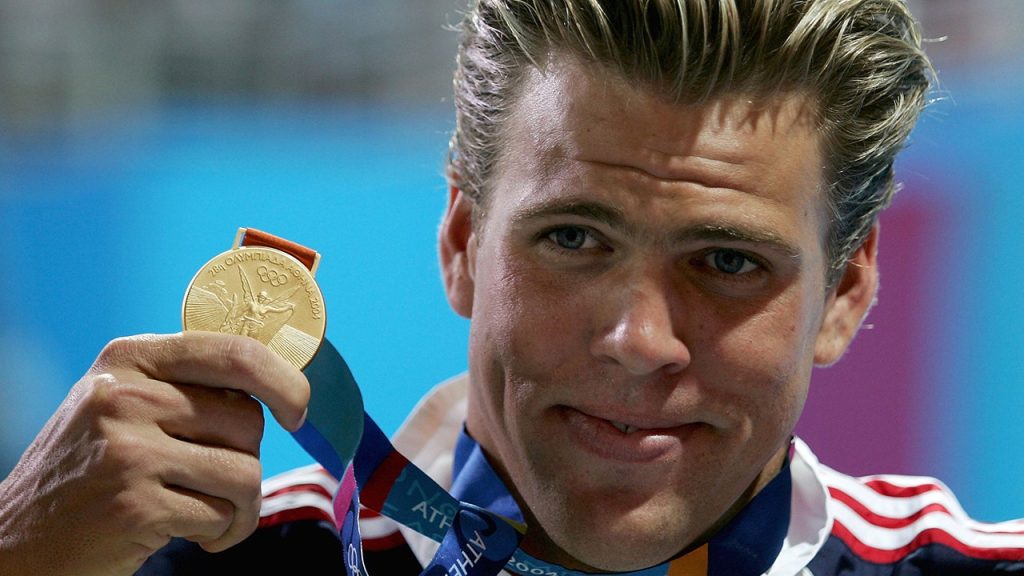The devastating wildfires that swept through Southern California in late 2023 left a trail of destruction and displacement, impacting thousands of residents, including ten-time Olympic medalist Gary Hall Jr. Hall, a prominent figure in the swimming world, found himself caught in the inferno’s path, forced to flee his Pacific Palisades rental home with little more than his dog and a few essential belongings. The rapidly advancing flames consumed his residence, taking with it all of his cherished Olympic medals – five gold, three silver, and two bronze – a tangible representation of years of dedication and athletic achievement. While the loss was undoubtedly significant, Hall maintained a remarkable perspective, emphasizing the paramount importance of life over material possessions. He acknowledged the thought of retrieving the medals crossed his mind, but the urgency of the situation, with explosions echoing around him and neighbors scrambling for safety, dictated otherwise.
The chaotic scene that unfolded around Hall was nothing short of apocalyptic. As he attempted to escape the encroaching flames, he witnessed panicked residents abandoning their vehicles, fleeing on foot amidst the thick smoke and intense heat. The usually bustling Sunset Boulevard became a gridlocked nightmare, transformed into a scene of desperate evacuation. Hall’s girlfriend found herself trapped in her car, surrounded by the suffocating smoke, a stark reminder of the imminent danger they all faced. The speed at which the fire spread left little room for deliberation, forcing residents to make split-second decisions about what, if anything, they could salvage. For Hall, that meant prioritizing the safety of his dog and grabbing a few essential items before escaping the inferno.
The aftermath of the fire revealed the extent of the devastation. Hall’s home, which also served as the base for his swim school for children, was reduced to ashes. The medals, symbols of his remarkable athletic career, were likely melted beyond recognition. Facing the daunting task of rebuilding his life, Hall expressed a mix of emotions, acknowledging the inevitable wave of grief that would accompany his return to the site of his former home. The prospect of sifting through the debris, searching for remnants of his past, was a sobering reality. Yet, amidst the loss, Hall’s resilience shone through. He recognized that material possessions, while valuable, could be replaced; life, however, was irreplaceable.
The wildfires that ravaged Southern California were fueled by powerful Santa Ana winds, creating a perfect storm for rapid fire spread. Thousands of residents were forced to evacuate their homes, leaving behind their belongings and memories. The fires scorched over 27,000 acres, claiming the lives of at least five individuals and leaving a trail of destruction in their wake. The scale of the disaster prompted widespread relief efforts, with organizations and individuals mobilizing to provide support to those affected. The Los Angeles Chargers, for example, donated $200,000 to wildfire relief efforts and urged fans to contribute to supply drives ahead of their playoff games, demonstrating the community’s collective response to the crisis.
Gary Hall Jr.’s experience serves as a poignant reminder of the unpredictable nature of natural disasters and the importance of preparedness. While the loss of his Olympic medals represents a significant personal blow, his unwavering focus on the value of life underscores a crucial lesson. In the face of such overwhelming devastation, the preservation of life and the support of community become paramount. Hall’s story embodies the spirit of resilience and the ability to find strength amidst adversity, inspiring others to prioritize what truly matters.
The wildfires also highlight the vulnerability of communities to the increasing threat of climate change-fueled disasters. The intensity and frequency of such events are projected to increase in the coming years, underscoring the urgent need for proactive measures to mitigate risk and enhance community resilience. The response to the California wildfires, with its outpouring of support and collective action, offers a glimpse of the power of community in times of crisis. As individuals and communities grapple with the aftermath of these devastating events, the focus must shift towards rebuilding, recovery, and the development of strategies to prevent future tragedies. The story of Gary Hall Jr. serves as a testament to the human capacity to persevere in the face of adversity, while simultaneously emphasizing the pressing need for collective action to address the growing threat of climate change.










